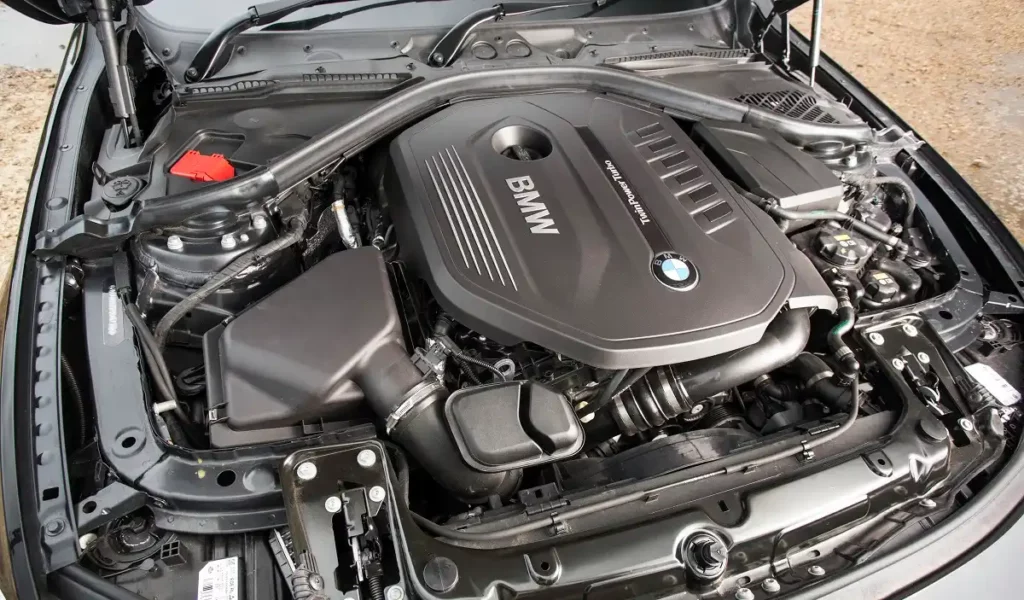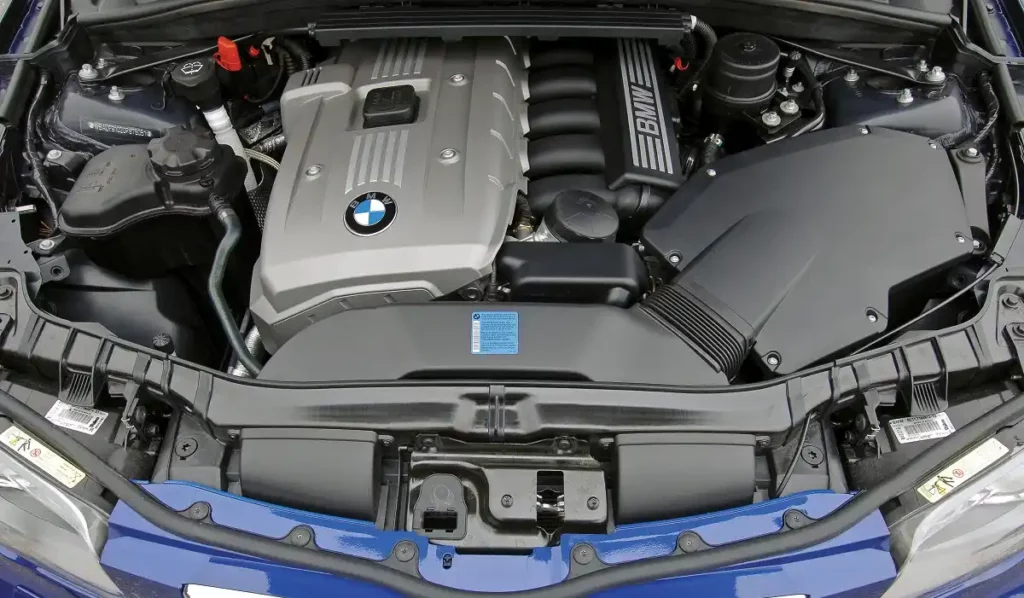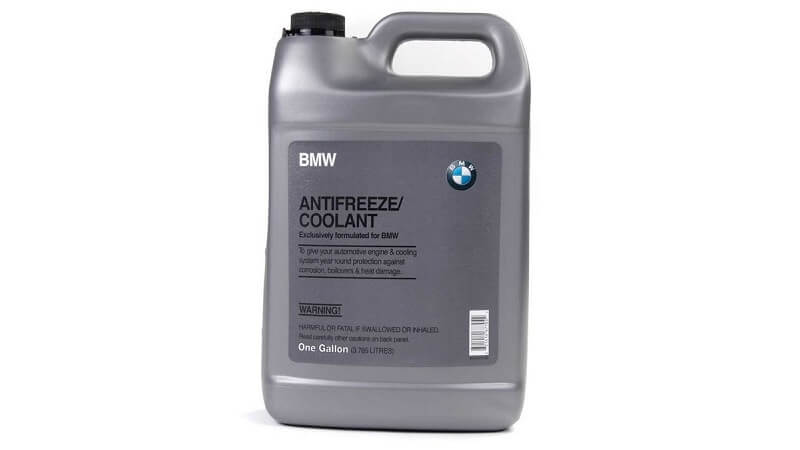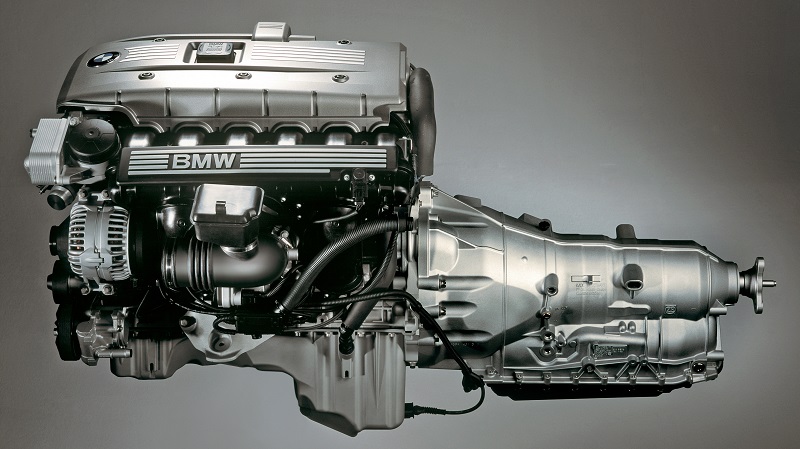BMW is instantly recognized just about anywhere in the world. Some of the best performance cars of all time, such as the E30 M3, and the McLaren F1 come with the blue and white badge on the hood.
On the other hand, BMW often falls victim to jokes about its subpar reliability and constant breakdowns. While this may be true to some extent, the brand has actually developed some of the most reliable engines available on the market. This includes the B58, M54, and other engines, which can handle hundreds of thousands of miles without issues. Here are the top 5 most reliable BMW engines.
Updated on 5/29/23 with information about common problems for each engine on the list!
BMW B58 Engine

The B58 is a relatively new but already renowned engine from BMW production. It debuted in 2015 with the launch of the F30 340i model and replaced the previously offered N55, which also made it to this list of the most reliable BMW engines.
The B58 is a gasoline straight-six with three liters of displacement — a classic recipe for a BMW engine. It uses a turbocharger with a twin-scroll design, which helps to achieve a more linear power delivery and decrease turbo lag. Both the head and the block of the engine are made of aluminum. Contributing to the perfect reliability of this engine are also the forged crankshaft and connecting rods.
Coming back to its predecessor, the B58 took all the N55’s perks and improved on them. As a result, the new drivetrain has a 20% higher boost pressure and a higher compression ratio. Of course, the power is also higher and the B58 is noticeably nimbler. At the same time, the engine is only 3.6 lbs heavier, with a total weight of 306 lbs.
Getting to concrete numbers, the B58 delivers between 322 and 382 hp based on the model it powers and 332 to 369 lb.-ft of torque. Whether located under the hood of a 1 Series or the top-of-the-range 7 Series, the B58 gets the car moving immediately and does not run out of breath even at high speeds. Paired with its supreme sound and comfort characteristics, this is one of the best options when looking for models with reliable BMW engines.
BMW B58 Common Issues
Even the highly regarded B58 engine, found in various BMW models, is not without its own set of known challenges.
High-Pressure Fuel Pump (HPFP) Failure
One of the most reported issues with the B58 engine is the failure of the high-pressure fuel pump. The HPFP supplies fuel at high pressure to the injectors, ensuring proper fuel delivery for combustion. If the HPFP malfunctions, it can result in poor engine performance, misfires, and even stalling. Some owners have experienced multiple failures, necessitating replacement of the fuel pump under warranty.
Coolant Leaks
Some B58 engine owners have reported coolant leaks, particularly from the plastic thermostat housing. Over time, the plastic housing can crack or develop leaks, leading to coolant loss. Coolant leaks should be addressed promptly to prevent engine overheating and potential damage. Replacing the thermostat housing with an updated metal version is a common solution to mitigate this issue.
Oil Filter Housing Gasket Leak
Another common problem with the B58 engine is an oil filter housing gasket leak. The gasket that seals the oil filter housing can deteriorate over time, resulting in oil seepage or leaks. If left unattended, it can lead to oil loss and potential engine damage. Replacing the oil filter housing gasket with an improved design or an upgraded aftermarket option is often recommended to address this issue.
Timing Chain Tensioner Failure
Similar to some other engines, the B58 engine can experience timing chain tensioner failures. The timing chain tensioner maintains proper tension on the timing chain, ensuring precise timing and synchronization between the camshafts and crankshaft. A failing tensioner can lead to chain slack, noise, and potential timing issues. Regular maintenance and timely replacement of the timing chain tensioner can help prevent more severe problems.
Carbon Buildup on Intake Valves
Direct-injection engines, including the B58, are prone to carbon buildup on the intake valves. With direct injection, fuel is sprayed directly into the combustion chamber, bypassing the intake valves. This can result in a lack of fuel washing over the intake valves, leading to carbon deposits over time. Carbon buildup can impact engine performance, fuel economy, and cause rough idling. Regular intake valve cleanings or the use of fuel additives designed to reduce carbon buildup can help mitigate this issue.
BMW M54 Engine

Another straight-6 gasoline engine but this time a naturally aspirated one. It entered production at the beginning of the new millennia and stayed until 2006 when it was phased out. The M54 first appeared with the introduction of the E53 X5, and it played an important role. In the early 2000s, SUVs were not nearly as popular as today, and the E53 was the first SUV by BMW ever. It was thus crucial that it is comfortable, powerful, and reliable.
Despite a more powerful V8 in the offering of the E53, the M54 was a popular choice. For such a large and heavy vehicle, the engine had a decent amount of power and towing capacity. Now, after the E53s were able to pass hundreds of thousands of miles on their odometers, we can also say that the engine excelled in design and reliability and can now be safely considered one of the most reliable BMW engines.
From the X5, the M54 also found its way to smaller models such as the Z3, Z4, 3 Series, X3, and other models. As a result of its vast application, it was available in various versions. The displacements ranged from 2.2L to 3.0L and power started at 168 hp and peaked at 228 hp.
In comparison to its predecessor, the M52, this engine had a fully electronic throttle without a mechanical backup and a non-return fuel system, among other changes. It used a similar aluminum block and cylinder head. Being developed in the late 90s, this engine was much simpler compared to today’s drivetrains. Combined with the fact that it used natural aspiration, this engine had the perfect predisposition to be a reliable option, and it proved to be one in real use as well.
BMW M54 Most Common Issues
Despite being one of the most popular and reliable Inline 6 engines BMW has ever made, the M54 is known to suffer a few issues. Here’s what you can expect to deal with.
Cooling System Failure
One of the most common issues encountered with the M54 engine is cooling system failure. Components such as the plastic thermostat housing, water pump, and radiator can be prone to leaks and failures over time. Coolant leaks and overheating can lead to serious engine damage if not addressed promptly. Regular inspections, timely replacement of worn components, and ensuring proper coolant maintenance are crucial to prevent cooling system failures.
VANOS System Failure
The VANOS system in the M54 engine is responsible for adjusting the timing of the intake and exhaust camshafts. Over time, the VANOS seals can deteriorate, resulting in oil leaks and reduced performance. Symptoms of VANOS system failure include rough idling, loss of power, and decreased fuel efficiency. Replacing the VANOS seals and performing regular maintenance on the VANOS system can help mitigate these issues.
Oil Separator (CCV) Failure
The Crankcase Ventilation (CCV) system, also known as the oil separator, is responsible for removing oil vapors from the crankcase. Failure of the CCV system can lead to excessive oil consumption, rough idling, and the presence of oil in the intake system. Regular inspections and timely replacement of the CCV components are essential to maintain the proper functioning of the system and prevent related issues.
Valve Cover Gasket Leaks
Valve cover gasket leaks are a common problem in the M54 engine. The gasket that seals the valve cover can deteriorate over time, resulting in oil seepage or leaks. This can lead to oil consumption, engine bay odors, and potential damage to surrounding components. Replacing the valve cover gasket with an updated design or an aftermarket option can help resolve this issue.
Ignition Coil Failure
Some M54 engine owners have reported issues with ignition coil failure. Faulty ignition coils can result in misfires, rough running, and reduced engine performance. Regular inspections and timely replacement of worn or failing ignition coils are crucial to maintaining optimal engine performance.
BMW N52 Engine

The N52 first started in the E90 3 Series and E63 6 Series back in 2004. It is a straight-6 with 2.5L or 3.0L of displacement based on the specific variant. The power figures ranged between 174 bhp and 268 bhp. The head was made of aluminum, while the engine block was made of a magnesium-aluminum compound. This contributed to the durability and lightweight characteristics of this engine.
Despite its introduction date, it stayed in production until 2015, which makes it one of the longest production runs in BMW engine history. This was not the plan at first, as BMW released its successor back in 2007. However, the succeeding N53 did not perform well in markets where fuels contained high amounts of sulfur.
This was also the case for the United States, and so, our market was able to enjoy the N52 for much longer. Only in 2011 was it slowly replaced with a BMW N20, which used an entirely different design — a turbo four-cylinder with direct injection and start-stop. The N52 is certainly the more reliable choice.
Two aspects that make the N52 a good choice for a reliable BMW engine are the lack of direct injection and a high-pressure fuel pump (HPFP). Direct injection is often associated with a higher carbon buildup, and short drives amplify this issue further. With this said, if you are considering a BMW for short city drives, indirect injection fuel engines such as the N52 are worth looking into.
BMW M52 Common Issues
While the BMW M52 engine has earned a reputation for its performance and reliability, like any mechanical system, it is not without its share of common issues. In this section, we will discuss some of the most prevalent problems that BMW owners may encounter with the M52 engine. Being aware of these issues can help you diagnose and address them promptly, ensuring the longevity and optimal performance of your beloved BMW.
Cooling System Weaknesses
One of the most notorious issues with the M52 engine lies within its cooling system. Over time, components such as the plastic radiator end tanks, water pump, thermostat, and expansion tank may become prone to failure. Leaks and overheating are common symptoms of cooling system issues, and it is crucial to address them promptly to prevent engine damage.
Vanos System Failures
The M52 engine incorporates BMW’s Vanos (Variable Camshaft Timing) system, which enhances performance and fuel efficiency. However, Vanos-related problems can arise, leading to issues such as rough idling, loss of power, and poor fuel economy. Faulty Vanos solenoids, worn timing chain guides, or worn camshaft position sensors are typical culprits.
Oil Leaks
Oil leaks are a recurring problem in many engines, and the M52 is no exception. Common sources of oil leaks in the M52 engine include the valve cover gasket, oil filter housing gasket, and oil pan gasket. Persistent oil leaks not only create a mess but can also result in oil starvation, potentially causing significant engine damage if left unaddressed.
CCV (Crankcase Ventilation) System
The CCV system is responsible for managing the ventilation of harmful gases from the crankcase. In the M52 engine, the CCV system can develop issues over time, leading to excessive oil consumption, rough idling, and a loss of power. A failing CCV valve or clogged hoses are often the culprits, requiring replacement or cleaning to rectify the problem.
Misfire and Ignition Coil Problems
Misfires and ignition coil failures are relatively common in the M52 engine. Symptoms of these issues include rough running, hesitation, and engine vibration. Faulty ignition coils, spark plugs, or fuel injectors are often the primary causes, and regular maintenance and periodic replacement of these components are essential to prevent such problems.
VANOS Rattle
Another common annoyance in the M52 engine is the “VANOS rattle.” This rattling noise typically occurs during cold starts and is caused by wear within the VANOS unit. While it does not necessarily indicate imminent failure, addressing the issue can prevent further damage and minimize the noise.
Throttle Position Sensor (TPS) Problems
The throttle position sensor monitors the position of the throttle plate, providing crucial information for engine management. However, in some M52 engines, the TPS can develop faults, resulting in symptoms like erratic idle, hesitation, or unresponsive throttle. Replacing the faulty sensor is usually required to resolve these issues.
BMW N55 Engine

A predecessor of the B58, this drivetrain was a popular choice for the 5 Series and X5 models, where it offered just the perfect amount of power. In fact, it first appeared in the F07 5 Series Gran Turismo, where it was the most common engine choice.
To get into the specifics of the N55 — it is a straight-six petrol with a twin-scroll turbocharger and three liters of displacement. It introduced a number of new features, such as the Valvetronic system and direct injection. Valvetronic is a variable valve lift system designed to improve fuel consumption and power delivery by providing torque from lower RPMs, while also improving throttle response.
While we mentioned that direct injection might not be the best option in some use-case scenarios, here, BMW has rightfully decided to make use of it. The older N54 used piezo-type fuel injectors, which were expensive without providing any benefit to drivers outside Europe. This is because of the differences between fuels across markets.
As with most other drivetrains from this list of reliable BMW engines, the N55 found application in a wide range of models, and even in some high-performance variants such as the praised BMW M2. There, the engine appeared in the N55B30T0 variant — one of the five factory configurations. Despite it having a decent boost in power over the base version, it can still be considered one of the most reliable BMW engines.
BMW N55 Most Common Issues
In this section, we will explore some of the most prevalent problems that owners of BMW vehicles equipped with the N55 engine may encounter. Being aware of these issues can help you identify and address them early on, which should help you avoid any awkward situations on the road.
High-Pressure Fuel Pump (HPFP) Failures
One of the most well-known issues with the N55 engine is related to the High-Pressure Fuel Pump (HPFP). The HPFP can fail prematurely, leading to symptoms like rough idle, misfires, loss of power, and difficulty starting the engine. BMW has issued several recalls and extended warranties to address this issue, so it’s advisable to check if your vehicle is affected and have the necessary repairs carried out.
Wastegate Rattle
The N55 engine features a turbocharger system with electronically controlled wastegates. However, some N55 engines are prone to developing a wastegate rattle, particularly at idle or during deceleration. This rattling noise can be an indication of excessive wear in the wastegate mechanism and may require replacement of the wastegate or turbocharger assembly to resolve the issue.
Oil Leaks
Similar to other BMW engines, the N55 engine can experience oil leaks over time. Common sources of oil leaks include the valve cover gasket, oil filter housing gasket, and oil pan gasket. Persistent oil leaks not only lead to a messy engine bay but can also cause oil starvation, potentially resulting in significant engine damage if not addressed promptly.
Electronic Water Pump (EWP) Failures
The N55 engine utilizes an electric water pump (EWP) to regulate coolant flow. However, some owners have reported premature failures of the EWP, leading to overheating, coolant leaks, and potential engine damage. It is important to monitor coolant levels and address any signs of coolant leaks promptly to avoid overheating issues.
Carbon Build-up
Carbon deposits can accumulate on the intake valves and in the intake manifold of the N55 engine, especially in vehicles driven under certain conditions, such as short trips or prolonged periods of low RPM driving. This carbon build-up can lead to rough idling, loss of power, and increased fuel consumption. Regular maintenance, such as periodic intake valve cleanings, can help mitigate this issue.
Ignition Coil and Spark Plug Failures
The N55 engine, like many others, can experience ignition coil failures and spark plug issues. Symptoms include misfires, rough running, and reduced engine performance. Regular inspection and replacement of ignition coils and spark plugs at the recommended intervals can help prevent these problems and maintain optimal engine performance.
VANOS Solenoid Issues
The VANOS system in the N55 engine, responsible for controlling camshaft timing, can develop issues with the VANOS solenoids. Faulty solenoids can cause symptoms like rough idling, reduced power, and a decrease in fuel efficiency. Replacing the malfunctioning solenoids can help restore proper engine operation.
BMW S62 engine

Last but not least, the S62 is definitely worth mentioning as one of the best reliable BMW engines. What is special about the S62 is that it is a high-performance engine designated for the BMW M models — in this case the E39 M5 and also the Z8. It is essentially a modified and thoroughly upgraded M62 engine with a significant horsepower boost, yet it does not lack anything in the reliability department.
And what exactly is the S62? A massive 4.9L V8 with 394 hp and 369 lb.-ft. It was also the first V8 that featured the BMW double VANOS system. It uses an aluminum block and engine head, just like the base M62 but other than that, the differences are vast. It has a larger displacement, higher compression ratio, hollow camshafts, electronically actuated individual throttle bodies with selectable modes, and numerous other changes.
In regard to reliability, it could be said that the base M62 is better. After all, it has moderate power figures in comparison, which put less strain on the internal components. However, the “S” engines are always modified to withstand the power increase and, in the end, the S62s have been proven to run almost flawlessly for years and years. The fact that this engine combines power and reliability so well reserves it a place among the most reliable BMW engines.
BMW S62 Common Problems
The BMW S62 engine, known for its performance and exhilarating power delivery, can encounter certain common issues over time.
VANOS System Failures
The S62 engine features BMW’s VANOS (Variable Camshaft Timing) system, which can experience issues as the engine ages. Common symptoms of VANOS problems include rough idling, loss of power, and reduced fuel efficiency. Faulty VANOS solenoids, worn timing chain guides, or damaged camshaft position sensors are typical culprits. Regular maintenance and inspections of the VANOS system can help identify and address these issues.
Timing Chain Guide Failures
Over time, the plastic timing chain guides in the S62 engine can wear and become brittle, leading to potential timing chain-related issues. Symptoms of failing timing chain guides may include rattling noises from the engine, rough idling, and loss of power. Addressing this issue promptly is crucial to prevent further damage to the engine, as a broken timing chain can cause catastrophic engine failure.
Valve Stem Seal Leaks
The S62 engine can develop valve stem seal leaks, leading to excessive oil consumption and blue smoke from the exhaust. These leaks can result in fouled spark plugs, reduced engine performance, and carbon build-up on the valves. Replacing the faulty valve stem seals is necessary to rectify this issue and prevent further oil-related problems.
Throttle Actuator Failures
The electronic throttle actuators in the S62 engine can experience failures over time. Symptoms may include rough idle, hesitation, unresponsive throttle, or even the activation of the engine’s failsafe mode. These issues can be caused by worn gears, damaged wiring, or faulty sensors within the throttle actuators. Replacement or repair of the throttle actuators is usually required to resolve this problem.
Cooling System Weaknesses
The S62 engine, like many high-performance engines, can experience cooling system issues. Components such as the plastic radiator end tanks, water pump, thermostat, and expansion tank may become susceptible to failure. It is essential to monitor coolant levels, address leaks promptly, and perform regular cooling system maintenance to prevent overheating and potential engine damage.
Rod Bearing Failure
In some instances, the S62 engine has been known to experience rod bearing failures. Symptoms may include knocking or tapping noises from the engine, particularly during cold starts or under load. Regular oil changes with high-quality oil and proper warm-up and cool-down procedures can help mitigate this issue, but it is crucial to monitor and address any unusual engine noises promptly.
Carbon Build-up
Carbon deposits can accumulate on the intake valves and in the intake manifold of the S62 engine, resulting in rough idling, reduced power, and increased fuel consumption. Regular intake valve cleanings and use of fuel additives can help mitigate carbon build-up and maintain optimal engine performance.
Reliable BMW Engines — Powerful and Full of Character
BMW is a manufacturer tested by time. In its long history, it had more than enough time to figure out how to make reliable, powerful engines full of character. As a rule of thumb, the simpler the engine is, the more likely it is to be reliable.
After all, what you don’t have can’t break. To some extent, this list reflects that as most of the engines are from the 2000s. Times have changed since then, and today’s requirements make engines much more complicated. However, as we can see with the B58, modern reliable BMW engines do exist. We have to wait to see how the latest electrified engines will compare but so far, BMW seems to be on the right path!
If you own any of the engines above, and you need quality auto parts, check our shop. Bimmers.com is home to one of the largest catalogs of BMW car parts online!





